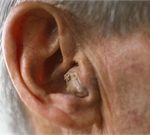
For at least two decades, the U.S. Food and Drug Administration has been approving new formulations of prescription opioids without requiring drug manufacturers to gather important information on safety and effectiveness, a new study claims. The FDA approved dozens of these highly addictive medications for treatment of chronic pain between 1997 and 2018 based on clinical trials that: Lasted no longer than 12 weeks, Failed to systematically gather data on adverse events or safety concerns, Actually weeded out of the final results from people who didn’t initially respond well to the drug. “No trial was longer than 84 days, whereas people take these medicines for years and they’re labeled for chronic use,” said senior researcher Dr. G. Caleb Alexander, co-director of the Center for Drug Safety and Effectiveness at the Johns Hopkins Bloomberg School of Public Health in Baltimore. The FDA continued to approve opioid drugs based on limited and flawed information even as the opioid epidemic swept across the United States, Alexander and his colleagues argue. “The primary harms that have driven the opioid epidemic have been because of the oversupply of opioids, especially for chronic use,” Alexander said. “The FDA has missed important opportunities to require manufacturers to produce more meaningful and clinically useful information about the safety and effectiveness of these products.” PhRMA, the leading trade group for pharmaceutical manufacturers, responded to… read on >
















